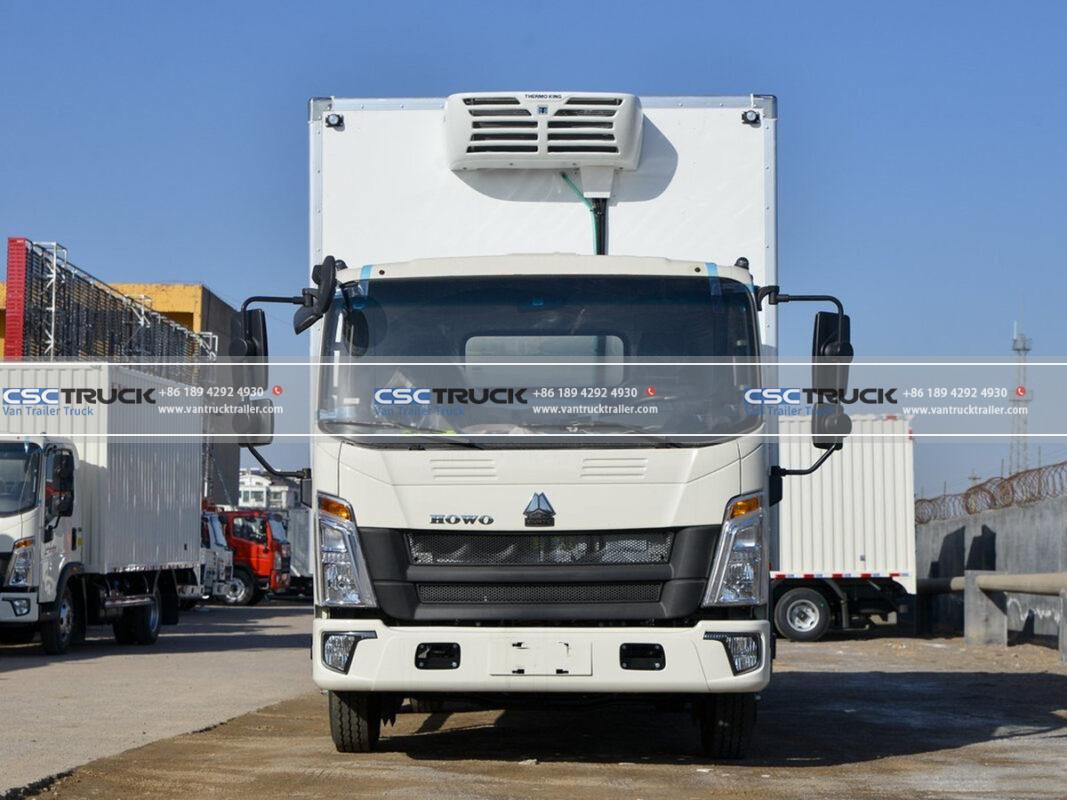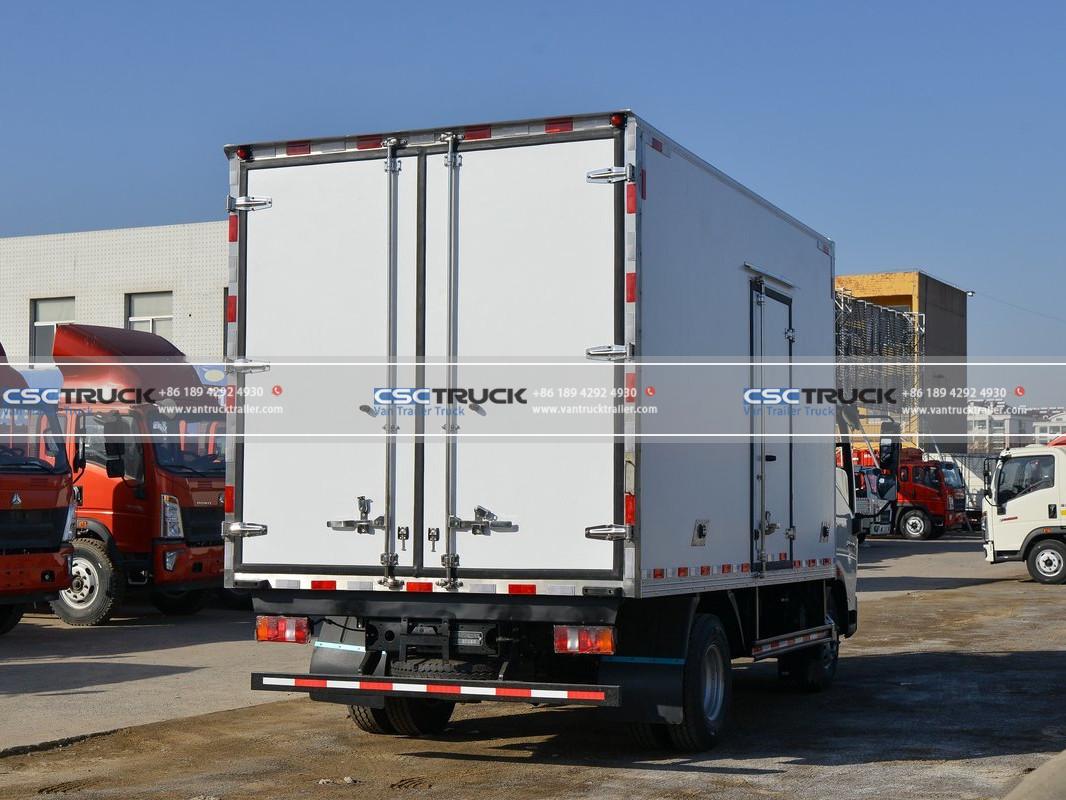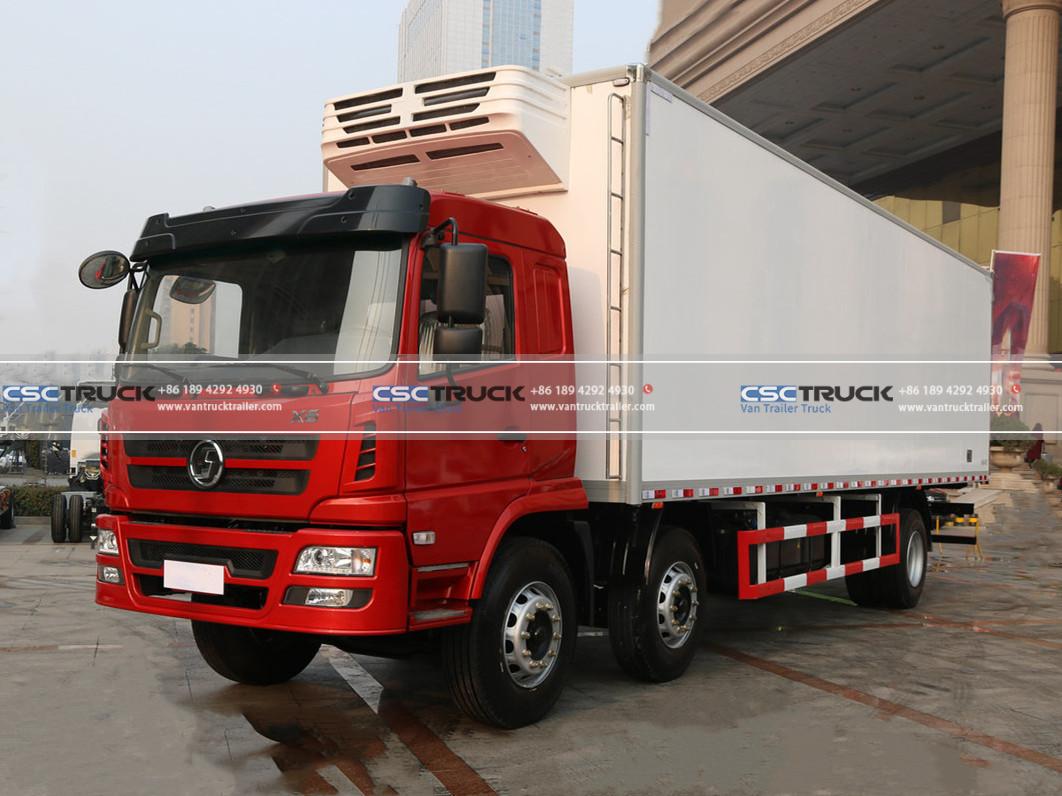In today’s competitive business landscape, efficient and reliable transportation is a cornerstone of success, especially for industries that deal with perishable goods. Whether you’re in the food, pharmaceutical, or floral industry, the ability to maintain optimal conditions during transit is critical to preserving product quality and ensuring customer satisfaction. This is where a refrigerated truck comes into play. Unlike a standard dry van truck or general-purpose cargo truck, a refrigerated truck offers specialized features designed to handle temperature-sensitive goods. But why should your business invest in one? This blog post explores the key reasons why a refrigerated truck is an essential asset for businesses that rely on the safe and efficient transport of perishable items.
1. Preserving Product Quality and Freshness
The primary reason to choose a refrigerated truck is its ability to preserve product quality and freshness. For businesses that deal with perishable goods such as fresh produce, dairy products, or pharmaceuticals, maintaining the right temperature during transit is non-negotiable. Even slight deviations can lead to spoilage, rendering products unsellable and resulting in significant financial losses.
A refrigerated truck is equipped with advanced cooling systems that maintain precise temperature control, ensuring that goods remain fresh and safe throughout the journey. Unlike a dry van truck, which relies on ambient air for ventilation, a refrigerated truck actively regulates its internal environment, making it the ideal choice for transporting temperature-sensitive items. By investing in a refrigerated truck, businesses can reduce waste, minimize losses, and deliver high-quality products to their customers.
2. Compliance with Industry Regulations
For many industries, transporting perishable goods is not just a matter of quality—it’s also a legal requirement. Businesses in the food and pharmaceutical sectors must adhere to strict industry regulations that govern the storage and transportation of temperature-sensitive items. Failure to comply can result in hefty fines, legal penalties, and damage to your business’s reputation.
A refrigerated truck is designed to meet these stringent requirements, offering features such as temperature monitoring, data logging, and alarm systems that ensure compliance with regulations like the Food Safety Modernization Act (FSMA) and Good Distribution Practices (GDP). These systems provide real-time data on the cargo’s temperature, allowing businesses to demonstrate compliance during inspections and audits.
In contrast, a standard cargo truck lacks the specialized equipment needed to meet these regulatory standards, making it unsuitable for transporting perishable goods. By choosing a refrigerated truck, businesses can ensure that their operations remain compliant and avoid costly penalties.
3. Versatility for Diverse Cargo Needs
One of the standout advantages of a refrigerated truck is its versatility. These vehicles can be customized to handle a wide range of cargo types, from fresh produce and frozen foods to pharmaceuticals and floral arrangements. This adaptability makes them an ideal choice for businesses across various industries.
For example, a refrigerated truck can be configured with multiple temperature zones, allowing it to transport different types of goods simultaneously. This feature is particularly useful for businesses that deal with mixed shipments, such as grocery distributors that need to deliver both frozen and fresh items in a single trip. Additionally, refrigerated trucks can be equipped with specialized storage solutions, such as racks or compartments, to accommodate unique cargo requirements.
While a dry van truck is limited to non-perishable goods, a refrigerated truck offers the flexibility needed to handle diverse cargo needs. This versatility ensures that businesses can rely on a single vehicle to meet their transportation requirements, reducing the need for multiple specialized trucks and optimizing operational efficiency.
4. Enhanced Security and Protection
Transporting perishable goods requires more than just temperature control—it also demands a high level of security and protection. A refrigerated truck is designed to safeguard cargo from external threats such as theft, contamination, and environmental factors, ensuring that goods arrive at their destination in perfect condition.
The fully enclosed design of a refrigerated truck provides a secure environment that shields goods from unauthorized access and tampering. This is particularly important for high-value shipments, such as pharmaceuticals or gourmet foods, where the risk of theft is a major concern. Additionally, the insulated walls of a refrigerated truck protect cargo from external temperature fluctuations, ensuring that the internal environment remains stable even in extreme weather conditions.
In contrast, a standard cargo truck offers limited protection against temperature changes and external threats, making it unsuitable for sensitive shipments. By using a refrigerated truck, businesses can ensure that their goods are transported safely and securely, minimizing the risk of damage or loss.
5. Supporting Sustainability and Cost Efficiency
As businesses increasingly prioritize sustainability, refrigerated trucks have evolved to offer eco-friendly solutions that reduce environmental impact and operational costs. Many modern refrigerated trucks are equipped with energy-efficient cooling systems, hybrid powertrains, and advanced insulation materials that minimize energy consumption and emissions.
For example, some refrigerated trucks use variable-speed compressors that adjust their output based on cooling demand, reducing energy usage during periods of lower activity. Others are powered by alternative fuels such as compressed natural gas (CNG) or electricity, further lowering their carbon footprint. These innovations not only align with global sustainability goals but also help businesses reduce fuel and maintenance costs.
While a dry van truck may be more energy-efficient for transporting non-perishable goods, it lacks the specialized features needed to maintain temperature control. By investing in an energy-efficient refrigerated truck, businesses can achieve significant cost savings while contributing to a more sustainable future.
Choosing a refrigerated truck for your business is a strategic decision that offers numerous benefits, from preserving product quality and ensuring compliance with industry regulations to providing versatility, enhanced security, and sustainability. Unlike a standard dry van truck or general-purpose cargo truck, a refrigerated truck is specifically designed to meet the unique demands of transporting perishable goods, making it an essential investment for businesses in industries such as food, pharmaceuticals, and floral logistics. By understanding the advantages of these specialized vehicles, businesses can make informed decisions that enhance their operations, protect their products, and support their long-term success.



